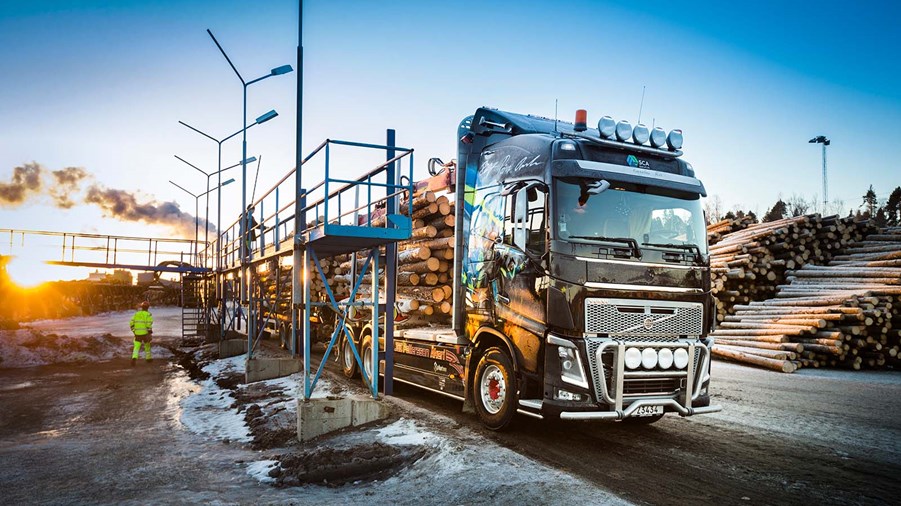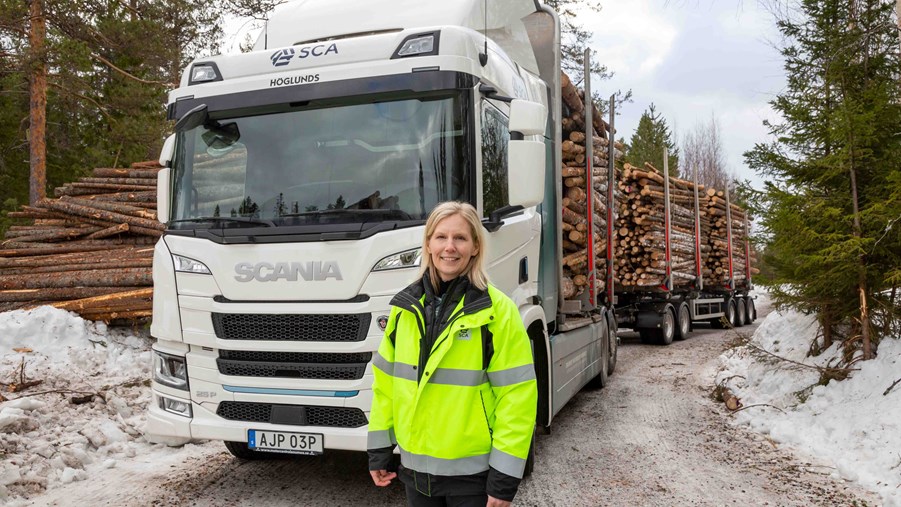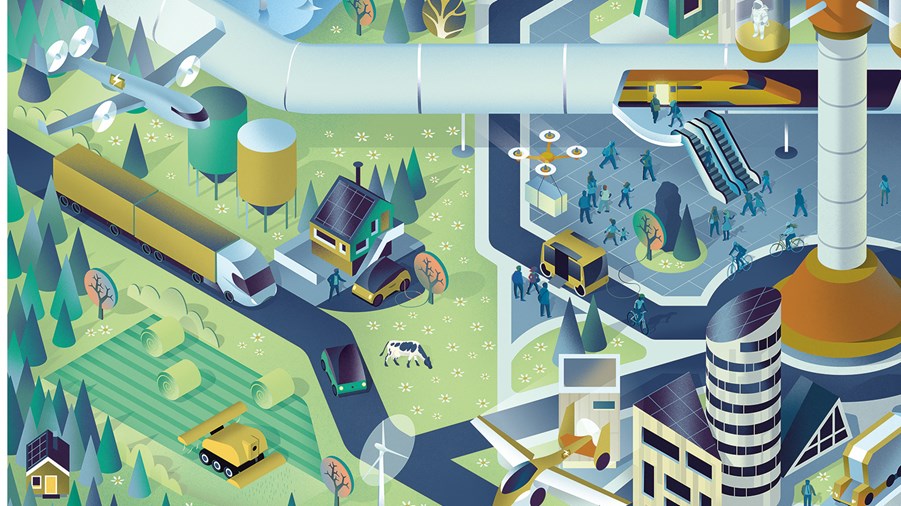
Sweden’s forest industry conducts short haul transports – from forest land to industrial sites – and a large number of extremely long-distance transports to customers around the world. This makes sustainable transport a key issue.
Transport is vital to society. We depend on transport for individual travel and to obtain the products we need.
As Sweden’s largest transport buyer, the forest industry is constantly striving to make transport more efficient and more sustainable. Researchers in transport and logistics often highlight the need to work with a range of measures for more sustainable transport with lower fossil emissions. These options are based around electrification, efficiency, and the increased use of fossil-free fuels.
Trucks, trains and ships
The forest industry uses transport when wood has to be transported from forest land and later in the supply chain to transport products to the customer. This presents a different set of requirements and challenges:
- From forest land to industrial sites: transport takes place primarily by truck. To reduce emissions from such transports, the option of transporting more wood on fewer and larger trucks is an important part of the solution. A lot of research is currently being conducted into how trucks can be electrified and run on biofuels.
- From industry to customers: the forest industry mainly uses trains and ships to transport finished products to customers around the world. The industry is dependent on functioning infrastructure with well-maintained tracks, well-thought-out track infrastructure and reliable icebreakers, to name a few examples.
Sweden’s largest transport buyer
Sweden’s forest industry is the country’s largest transport buyer. Most of the forest industry’s transports are carried out by third parties in the form of various logistics companies for trucks, trains and ships. As a result, a large number of actors are involved and responsibility for keeping transport as sustainable as possible is shared. The forest industry has a key role in driving development forward in this area.


